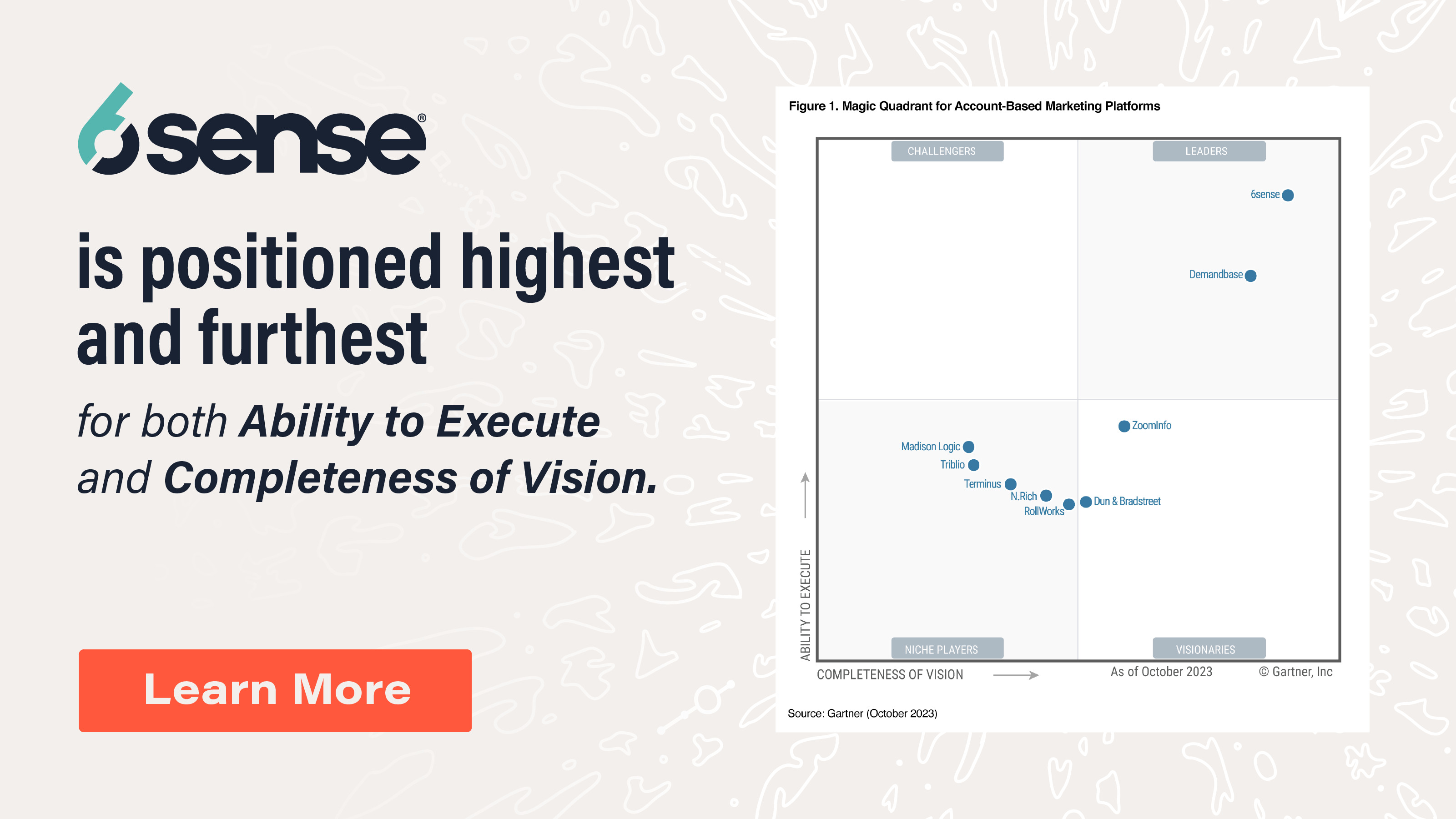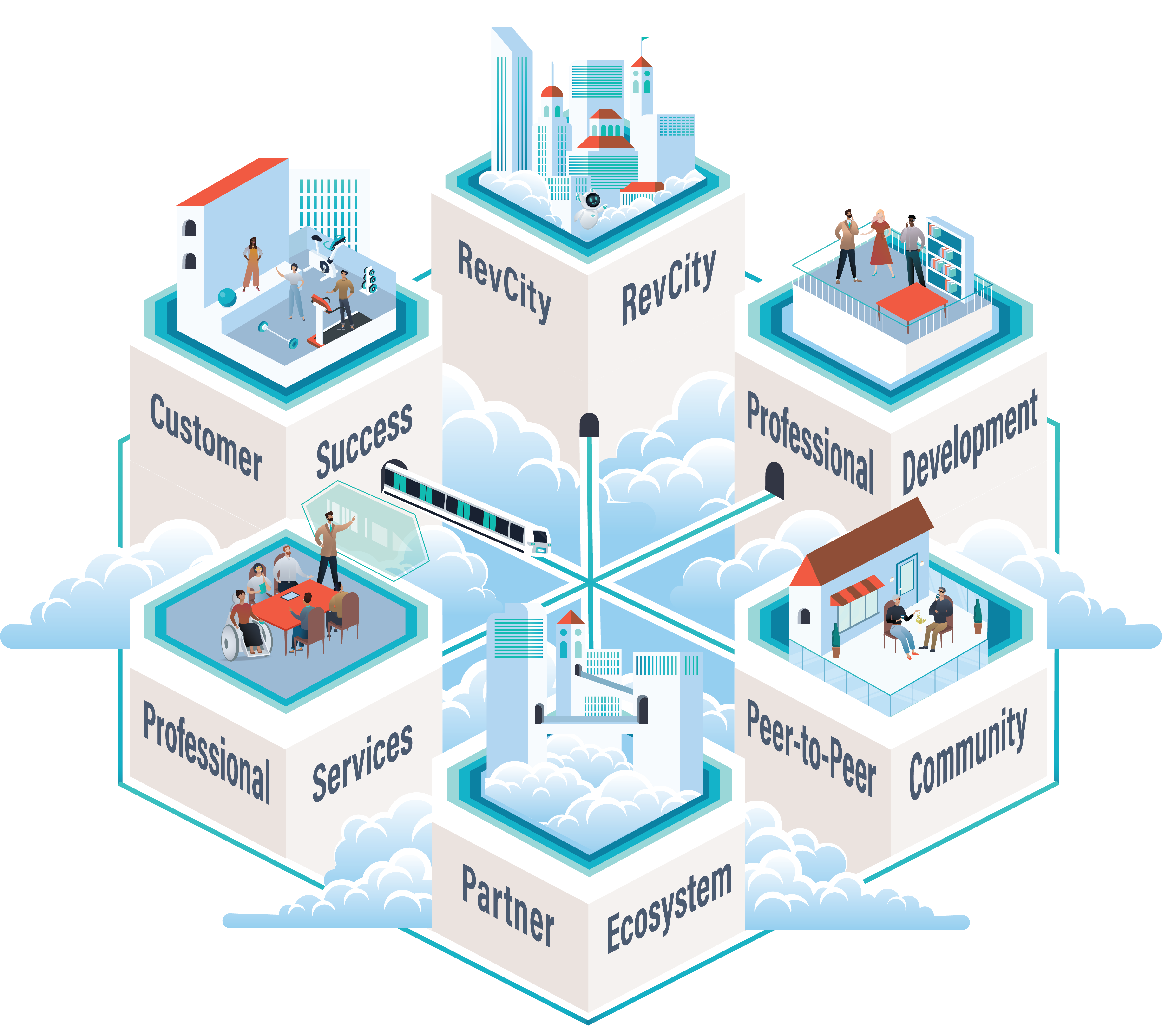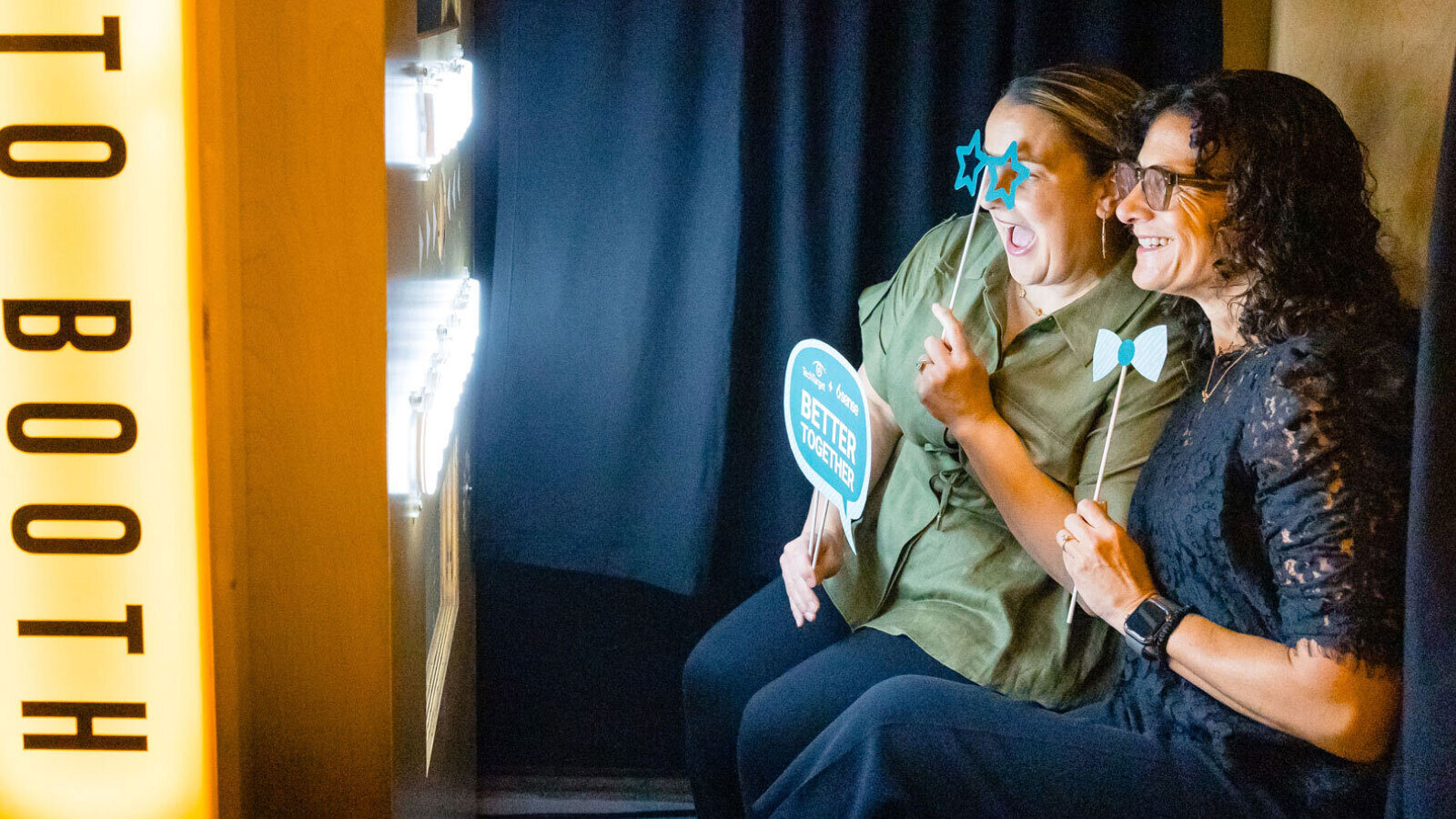Event marketing is a powerful tool in the B2B marketing toolbox. Events — in-person, virtual, or hybrid — allow direct engagement with your audience, enhance brand visibility, generate high-quality leads, and strengthen customer relationships.
A lot of effort goes into event planning and execution, which at 6sense, is handled by our Account-Based Experience (ABX) team. They’re laser-focused on creating personalized experiences for high-value accounts, combining the principles of account-based marketing (ABM) with experiential marketing tactics.
Not to toot our own horn about how great 6sense events are, but toot toot. We have a lot of fun, wear a lot of teal, and deliver a lot of valuable ABM know-how and insights to prospects and customers.
Here’s how the 6sense ABX team approaches event marketing, and the best practices they use to make their events effective and memorable. Read on to get the inside scoop!
Data + Experience = Pipeline
Data is behind everything we do at 6sense. Data answers questions like:
- Who to reach out to by identifying ideal customers based on firmographics and technographics
- What business needs prospects are hoping to solve through keyword and content consumption analysis
- When to reach out based on buying intent, which helps narrow down which stage of the buying journey a customer is currently in
The ABX team at 6sense is most focused on prospects who have demonstrated enough intent to reach the Decision stage and have been vetted as 6sense Qualified Accounts, or 6QAs. For context, the 6QA is a data-backed alternative to traditional marketing- and sales-qualified leads.
The ABX team invests most of its resources into targeting 6QAs with tactics such as:
- LinkedIn ads
- Personalized gifts
- Targeted field events
Once again, data is crucial for determining the strategy of each tactic. For events, it’s used to select the best accounts to invite. It’s also used to understand their needs and concerns rooted in factors like their industry, company size, and tech stack. This research informs the theme or topic the event will cover, based on what will resonate best with the target audience.
The other vital component to effective events is creating a memorable experience that will leave a good impression of the brand, the solution, and value it provides.
Collaboration with sales is also required for a successful event experience. Ultimately, it’s sales working to close deals, and trust and communication between sales and marketing is necessary for marketing to provide sales with persuasive, educational, engaging collateral.
When data and experience come together, ABX strategizes and holds events that provide fun, but most importantly, value. This can be seen in pipeline metrics like accounts and personas engaged, velocity, closed deals, and ROI.
Event Marketing Case Study
Let’s use an example of 6sense’s attendance at Forrester’s B2B Summit to see what effective event marketing looks like from beginning to end.
Selecting the best accounts: Research into historical data suggested which accounts might be likely to attend the B2B summit. Keyword analysis also hinted at which accounts showed interest in attending. Accounts that were ICP matches or 6QAs that were geographically local to the event were also selected as good candidates for outreach.
Knowing about them: The next step was to dive into the data and learn about potential attendees, including:
- What are they doing, based on network activity
- What they care about, indicated by their top keywords
- What their business looks like in terms of firmographics
- Who is engaged on the buying team, and to what degree
Engaging the right way: Before the event, ABX launched outreach tactics such as:
- LinkedIn and display ads
- Personalized outreach by sales
- Personalized Drift AI Chatbots to invite top accounts to book meetings
- A landing page
- Social media outreach
- Using Conversational Email, our AI-powered email writer, to schedule meetings at the Summit
Engagement at the event itself came in the form of:
- A showroom booth
- A meeting space to connect with top accounts
- An exclusive invite-only club space experience
- Speaking sessions
- A special evening event for top accounts
Collaborate with sales: Event preparation involved internal revenue team meetings, promotion of sessions, and enablement training. Goals and metrics were also visible across the entire revenue team with shared dashboards, and follow-up was also cross-functional to include marketing and sales.
Tracking real stuff: Engagement was recorded and measured based on attendance for sessions, connection meetings, the evening party, the invite-only club experience, booth visits, and other points of engagement offered throughout the event. The number of meetings exceeded the goal, and pipeline and ROI were calculated based on conversions and metrics.
Effective Event Marketing Checklist
Now it’s your turn. Ready to do event marketing right? Make sure you do the following:
Pre-Show
- Define goals and objectives (e.g., lead generation, brand awareness, product launch)
- Based on your goals/objectives, determine your ideal attendees
- Use revenue technology to identify in-market attendees
- Craft targeted, personalized campaigns, considering platforms like landing pages, email, social, and gifting programs
During the Show
- Provide educational, personalized content to address the specific needs of prospective customers
- Engage with attendees and have knowledgeable staff on-site to answer questions, conduct demos, and share valuable insights
- Offer an entire on-site experience, like opportunities to discuss their business needs with top executives or network with existing customers
- Collect learnings and feedback from attendee interactions and update account profiles in your CRM
Post-Show
- Personalize follow-up campaigns based on data gleaned from on-site interactions
- Share event highlights to remind attendees of the value of their experience and knowledge gained
- Measure ROI and other KPIs
- Use data to refine strategies for future events
You can learn more about account-based field marketing from Alura Roe, Sr. Manager of ABX at 6sense, and get even more 6sense “secret sauce” from our marketing and sales leaders here.



